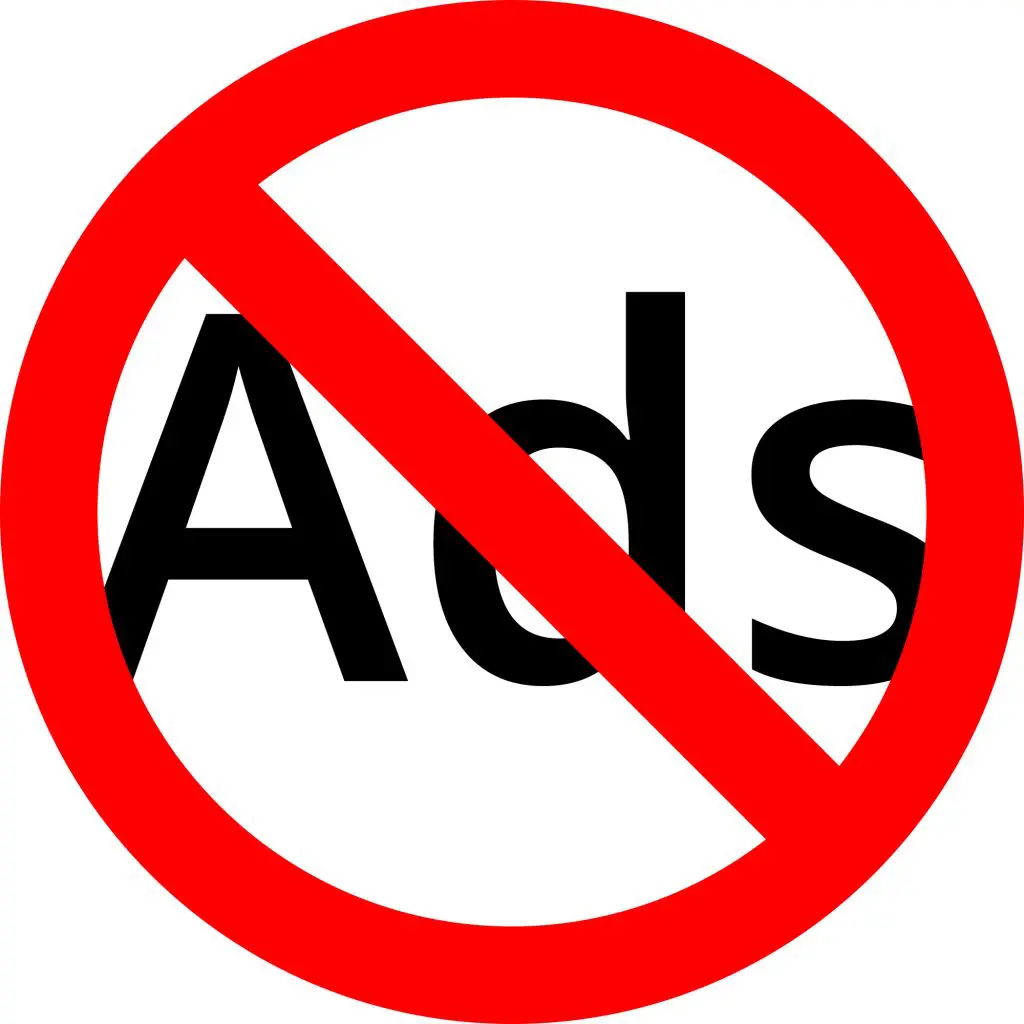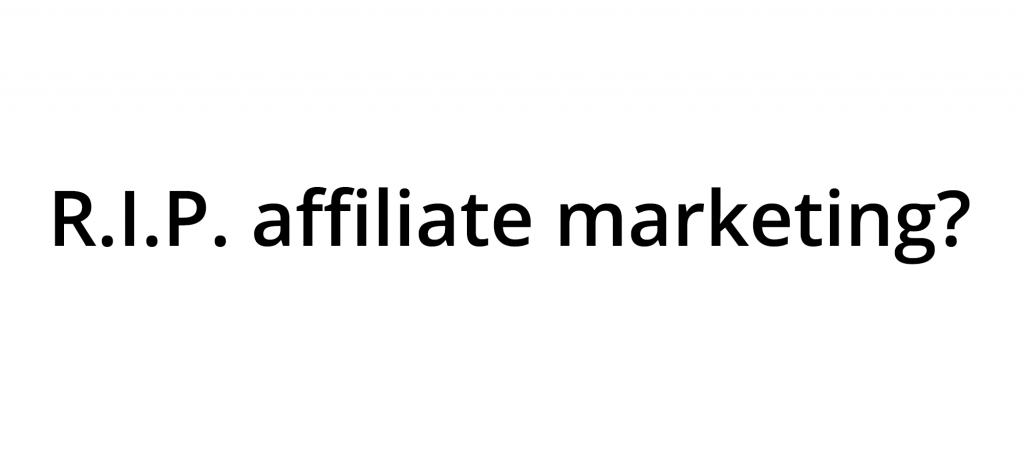The web is basically funded by ads and we are very used to having cookies from sites follow us everywhere we go on the web. To keep the internet “free to use” nearly every website a person visits attaches different tracking cookies to that person’s terminal equipment or IP address so that targeted ads can be shown at every step of the way. When that device or IP address returns to a site it can be identified as a return visitor. The reason for this is simple. Targeted advertising makes a great deal of money on the internet. Ads and their associated cookies pay for almost everything “free” online. But the rights of consumers and their privacy will change internet advertising in 2018 dramatically.
Attribution – Changes Coming to Internet Advertising in 2019
Many companies still rely on “last touch attribution”. Attribution refers to which marketing channel gets “credit” for a sale, and is very influential in determining marketing budgets. The two main data sources for attribution are the shopping cart or customer retention management data and its analytics or transaction logs. Many marketing automation tools combine the data from the CRM file and match it to consumer data provided by other companies, social media accounts, email lists, mobile apps and other marketing channels. This helps marketers better identify and target existing customers online (and potential prospects that are similar to their existing customers.) Marketers can do this anonymously and in full PII-compliance in the hope of capturing a market share of their target customers and encouraging existing customers to spend more with their brand. Companies can test whether abandon cart emails, social media ads, coupons, print ads, search ads, and other promotions work best on various audience segments by assigning attribution tags to each marketing channel used, and tracking them in a tool such as Google Analytics.
The only way attribution works is by assigning cookie tags when devices visit a site. Problems always occur when visitors use different devices when they visit a site. They may use a desktop device at work, a phone during the car pool ride home, and a tablet or laptop in the evening. Even with sophisticated data matching, it is difficult to connect all the different customer screen touch points to get an idea of which marketing channels work in different situations to create the best return on investment. Companies would like to spend money on marketing that they can see is actually working. While this is a complicated process and a big business now, there are changes looming on the horizon that will further hinder the online advertising landscape. Marketing automation tools access and connect user data from different databases to create a more robust picture of individual users visiting a website. They can then individually design targeted ads for each user. However privacy concerns will change internet advertising in 2019.
There are three big privacy protection issues that will result in many online businesses being forced to adjust yet again to the changing landscape of the internet, particularly internet advertising in 2019.
The Increasing Use of Ad Blockers will Change Internet Adverting in 2019
It is no secret that consumers hate viewing ads when they are in an app, reading an article, watching a video or doing anything other than searching for a product. Consumers have taken action over the past few years and increased up their use of Ad Blockers. In January Paige Fair published a report showing that 11% of global internet users use Ad Blockers and that this was up 30% over last year. The main reasons that consumers use ad blockers is for privacy, security and “interruption”. We’ve written about our favorite and versatile ad blocker that works across multiple browsers here (ie Ghostery). Additionally Comparitech has written about the most popular ad blockers more recently here.
However, to combat ad blockers many websites erect an “ad block wall” that prevents browsers with ad blockers in use from viewing their site content unless the user disables the ad blocker. PageFair’s report went on to say that 74% of people using ad blockers simply left these sites rather than disable the ad blocker or white-list the site. This makes sense because there is very little content on the internet that is not duplicated or can not be found from another source that doesn’t block the use of ad blockers. In fact, Google has long been an advocate of cutting down on intrusive ads on web pages, actually penalizing via their search results when website pages do not conform with Google’s standards. Google penalized Ads heavily in 2012 and also in 2017. There is reason to believe that changes to internet advertising in 2018 could bring additional Google penalties.
Chrome’s Funding Choices Ad Blocker Service coming to Internet Advertising in 2019
When a business purchases a display ad, cookies associated with the ad provide them with the attribution tracking that is necessary for showing return on investment from the ad. Big changes are coming to ads served by third parties because Apple and Google are both addressing consumer’s voiced displeasure with pop up, in article, video and display ads. Google has recently announced that all Chrome browsers will now employ Funding Choices https://blog.google/topics/journalism-news/building-better-web-everyone/ a prompt that requests the user turn off their ad blocker or “pay for a pass that removes all ads on that site through the new Google Contributor.” If the user complies, Google will receive 10% of the fee charged, and if the user does not comply, he or she will not be able to view the website. To sign up for this service users must read the terms and conditions in the Google Contributor program, and must be signed in to Chrome.
So in the near future, instead of encountering and Ad Blocker Wall, users will instead receive the prompt from the Chrome browser, and in return for “outsourcing the task” Google will get a cut of the publisher’s fee for content viewing – but Google will also be able to show ads on that publisher’s content and not have cookies blocked. So far there are several publishing sites that have agreed to participate in the beta program, including Business Insider. However if a user views a site on a browser other than Chrome (say perhaps DuckDuckGo which does not assign cookies) the publisher will likely continue to prevent viewing of content using the website’s own Ad Blocker Firewall.
In fact in a blog this week Google announced the latest video auto play blockers, where users will have greater control over Autoplay options, and a schedule of the release dates for these autoplay changes.
It makes a good deal of sense for Google to take this step to prevent people with ad blockers from viewing content on the web where Google may be displaying ads. After all, the majority of Google’s revenue comes from ads. It makes sense for publishers, affiliate sites (especially coupon sites) and others with unique content to protect their ad dollars this way as well, so that marketers can continue to show attribution and retailer brands will continue to place ads on these publisher’s sites.
In order to join the contributor program online publishers must meet ad standards from the Coalition of Better Ads, (Facebook and Google are members of this organization), which dictates the ad types that are unacceptable https://www.betterads.org/standards/. Here is a list of the contributor sites in the beta program so far.
DoubleClick now has an Ad Experience Report that shows up in Webmaster Tools and there is an API from Google that online publishers can use to find and fix any annoying ad experiences (such as auto-playing audio, pop-ups and takeover ads) in order to conform to the new standards.
Several popular sites like the Forbes and the LA Times failed the ad test as reported by Digiday. In fact of 100,000 sites Google has reviewed so far, 700 received a “failing” status.
In a blog, Google specified that the new version of Chrome, which will prevent websites from showing any ads that don’t meet its standards will be released in early 2018. This gives site owners a few months to figure out how to replace “annoying ads” and their revenue before their sites are penalized by Google. For instance, Google hasn’t ruled out not showing ALL the ads on a site that doesn’t pass — not just the offending ads. Take-away for all website owners who show ads – Run the DoubleClick ad Experience Report and ensure that your site will not be penalized by Google in the near future.
Apple Ad Blocker Announced – Bringing More Changes to Internet Advertising in 2018
Apple is also keenly aware of the public’s hate for annoying ads and desire for more privacy and security. At Apple’s recent WWDC Conference, this was addressed with an announcement that Safari will automatically block ads in the next version of macOS, called High Sierra. Since about half of all mobile phones use Safari by default, this will have a major effect on marketers that currently rely on attribution via cookies and tags. Safari will also block videos that autoplay. Remember that Facebook recently allowed Autoplay video. However the retargeted ads that Apple will block only represent 3 to 4% of publisher’s revenue according to Jason Kint, CEO of Digital Content Next in an article by Digiday: Safari currently accounts for about 30% of browser sessions online.
Since Safari has allowed ad blocking for a while, what will be different about this new built-in blocker? Safari’s current ad blockers allow cookies “from websites I visit.” In the new version, Safari keeps cookies for 24 hours after a visit and deletes any cookies older than 30 days. This is so that if you visit a site (and that site adds cookies for a better user experience) you will have these cookies as long as you revisit the site every 24 hours – and sites like Facebook and Google should therefore not be affected by this new ad blocker strategy. However sites that manage cookies for thousands of websites, like Adroll or affiliate networks will obviously have their cookies removed. Other smaller, less visited sites will also be affected by the cookie deletion policy. Google and Facebook earn 90% of every dollar spent on online ads and this new ad blocking Safari browser will push even more ad revenue their way, and move it away from smaller ad networks, likely disrupting internet advertising in 2019.
The EU Legislation – or the Cookie Law – Another Change to internet Advertising in 2019
The final factor that will remake the face of video advertising in the coming months will take effect in May of 2018 when the European Union will begin to enforce a law that gives internet users more privacy by affording them the choice about whether they want to visit a website after first disclosing all the cookie data that each website collects and shares. This will dramatically change internet advertising in 2018, not only in the EU but across the web as everyone recognizes the consumer’s desire for transparency with how websites share their private data. Websites will be required to get each user’s consent before storing any visitor information. The user will be able to see all the data begin collected by websites they visit, and will have the right to refuse the use of these cookies. Sites that do not comply with the new cookie law will be fined by the Information Commission’s Office in the UK.
In order to comply with the EU cookie law, website owners who use internet advertising in 2018 need to:
- Using a cookie audit, identify the cookies your site sets, and what they are used for. There are several services (some free) that offer a cookie audit and also will help you create the javascript necessary for cookie disclosure on your site’s home page. Here are a few of the most popular cookie audit sites: Cookiebot ($20 for a report), CookieQ (free), Digital Conrol Room( a cookie monitoring service that provides a responsive banner, detailed cookie policy and an interactive panel displaying all the information about the cookies found on your site), and CookieLaw (which provides a free cookie audit tool and a cookie management service).
- In your Privacy section, disclose how cookies are used.
- Finally you must somehow get a user’s consent before attaching cookies to their browser. Many of the above services will supply javascript or code for Google Tag Manager to create a banner on your site’s home page that discloses how cookies are used. You can simply disclose how cookies are used with a must read version of your privacy policy and a consent box that will then display your site content instead. If your audience is not people in the EU, you can currently skip this step, but it might be a good idea to consider adding it at some point as many consumers outside the EU will likely prefer this option as the EU adapts.
Many consumers will want to know which cookies collect data across many websites, which are then used to create ‘behavioral profiles’ that can be shared and used to target them on multiple types of media. In the future many consumers may wish to avoid websites that share their cookies. This will also make it easier for web browsers to display a website.
Under the EU proposal, web browsers such as Chrome, Safari, Firefox and Internet Explorer must “offer the option” to “prevent sites that use third party cookies from storing information on the equipment or URL of the person visiting a OR from using information already stored about that person. The browser must inform users of its cookie use (both privacy setting options and risks) and it must have a feature that requires browser users to select a cookie setting before continuing. If a browser is already installed on a device before the EU regulation takes effect, the browser software must comply by August 25, 2018. This takes the onus off of website owners.
One big question that I could not uncover during my research is what will happen to EU affiliate marketing campaigns that depend on cookies to track which affiliate site gets a commission for sending traffic to retail sites if the majority of internet users decide to protect their privacy and not allow cookies? 69% of affiliate sites are already expressing their dissatisfaction over payment issues. In February of 2017 the ICO warned companies not to rely on 3rd party consent messages to market to consumers. This issue may heat up quickly as cookie disclosure becomes mandatory in the EU and increases everywhere else on the web. Please tell us how you anticipate changes to internet advertising in 2018-19, as we’d love to hear from you on this issue.






